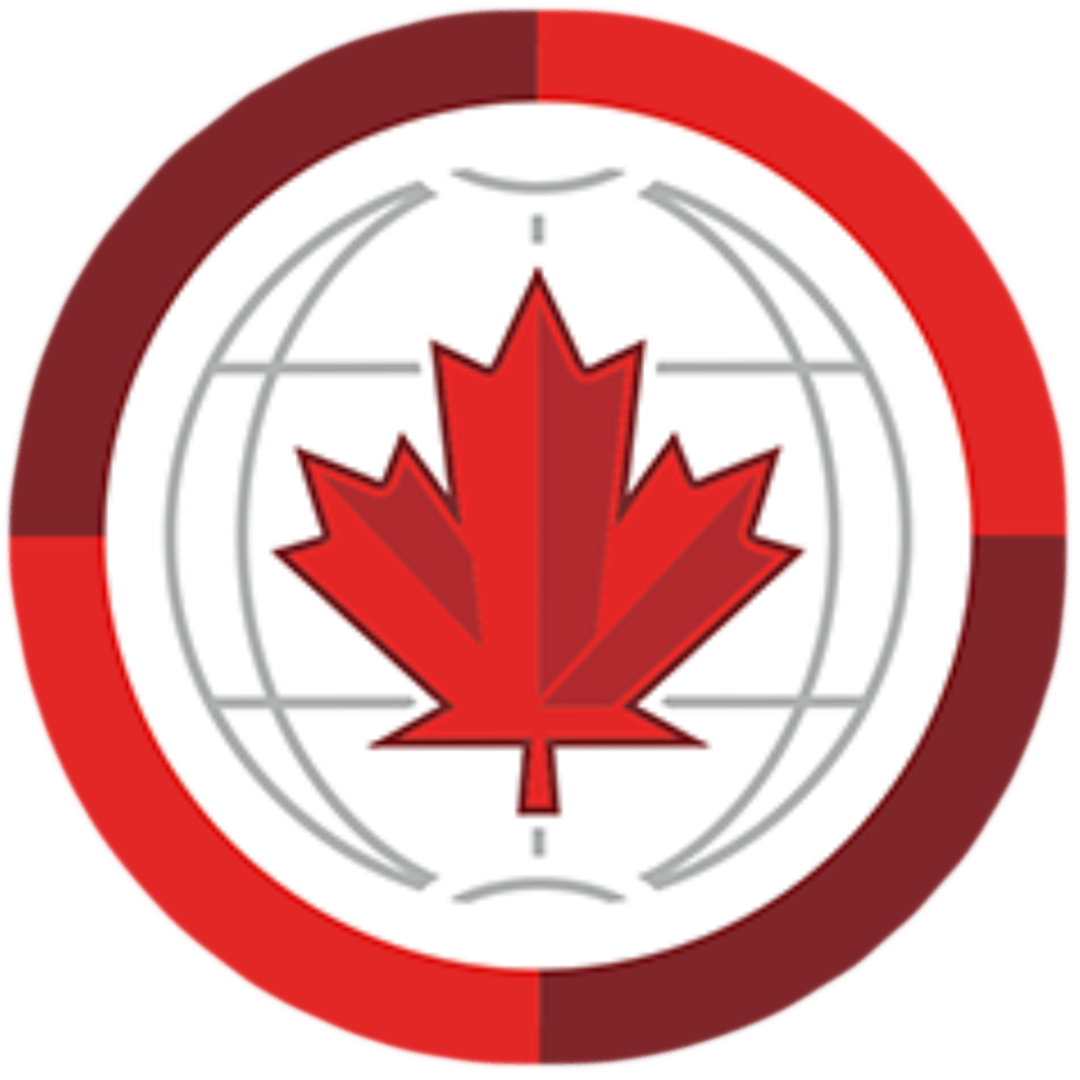
 GET FREE COUNSELLING
GET FREE COUNSELLING
How to Immigrate to Canada in 2025?
Canadian government aims to welcome 673,650 in 2025, 516,600 in 2026, and 543,600 in 2027. This article covers everything you need to know about how to immigrate to Canada and eventually become a Canadian citizen.
Canada is one of the most sought-after immigration destinations in the world. With its booming economy, world-class healthcare, high standard of living and multicultural society, it's no wonder why millions dream of calling Canada home.
The Canada immigration process may seem a bit complex but it's doable with proper guidance.
- The Basics of Canada Immigration
- Understanding the Immigration Process
- The Requirements of Canada Immigration
- What are the different pathways to immigrate to Canada from India?
- Other Pathways to Migrate to Canada
- From the UK
- From the United States
- From Pakistan
- From UAE/Dubai
- From Sri Lanka
- From Europe
- From China
- What are the costs involved in Canadian Immigration
- The Role of Immigration Consultant
- Eligibility Criteria for Canadian Immigration
- Application Process for Immigration
- What to Do After Submission of Application
- How to Get Canadian Citizenship?
- How to Protect Yourself From Scammers and Fraudsters
- What to Do After Approval?
The Basics of Canada Immigration
There are two main categories under which you can migrate to Canada:
- Temporary Residency - This includes visas like visitor/tourist visa, work permit, and study permit that allow you to live in Canada temporarily.
- Permanent Residency - This allows you to live and work anywhere in Canada and apply for citizenship later. The main pathways are Express Entry, PNP, Family Sponsorship, etc.
Within these categories, there are multiple migration programs and visa options that you can choose depending on your profile, skills, education, work experience, language ability, etc.
Understanding the Canada Immigration Process
Canada immigration is a well-structured system managed by the Immigration, Refugees and Citizenship Canada (IRCC).
The first step is understanding how the Canada immigration system works and to determine which program is most suitable for your profile. The eligibility criteria, application process, processing times and required documents will vary accordingly.
There are multiple programs and pathways designed to attract skilled workers, investors, students and families based on your background, skills, experience and eligibility. The main programs are Express Entry, Provincial Nominee Program and Family Sponsorship.
The Express Entry system manages applications for three economic immigration programs - Federal Skilled Worker, Federal Skilled Trades and Canadian Experience Class.
Candidates submit an online profile which earns points based on skills, education, work experience, etc. The highest ranking candidates get invited to apply for permanent residence.
Provincial Nominee Programs allow provinces to nominate immigrants based on local labor market needs. Candidates need to first apply to the province where they intend to live and work.
Canadian citizens and permanent residents can sponsor eligible relatives for permanent residence under the Family Sponsorship program. The major categories are:
- Economic class - For skilled workers who can contribute to Canada's economy. This includes programs like Express Entry, Provincial Nominee Program (PNP) etc.
- Family class - For reuniting families by sponsoring spouses, parents, children etc.
- Refugees - For resettling refugees and asylum seekers through humanitarian programs.
- Business class - For investors, entrepreneurs and self-employed individuals.
The Requirements of Canada Immigration
Some key requirements cut across most Canada immigration pathways:
- Age: Applicants are usually required to be between 18 to 60 years old.
- Language Proficiency: You must prove language ability in English and/or French which is key for integration. Minimum benchmarks are set through standardized tests like IELTS , CELPIP etc.
- Education & Work Experience: Most programs require a certain level of educational qualifications and skilled work experience relevant to the Canadian job market.
- Financial Stability: You need to prove sufficient funds to support initial settlement and adaptability. Minimum settlement funds range from CAD $12,000 to $25,000 for families.
- Medical Clearance: A medical exam and police clearance certificates are required to show you are in good health and have no criminal record.
- Intent to Immigrate: You must convince visa officers you plan to live in Canada permanently. Ties to home country vs. future plans in Canada are evaluated.
Now let's look at major pathways for immigrants based on their country of origin and profile:
Pathways for Canada immigration from India

There are several options for Indian immigrants planning to immigrate to Canada from India based on their education, work experience and connections in Canada:
This allows you to enter Canada as a tourist, meet relatives or friends, or for short-term business visits. You can stay up to 6 months at a time.
To work in Canada temporarily, you'll need a job offer from a Canadian employer and qualify for a work permit. The employer has to get a Labor Market Impact Assessment (LMIA) proving no Canadian worker can fill the job. Popular streams are ICT, Intra-Company Transfer.
If you get admission in a designated Canadian educational institution, you can apply for a study permit. You can work part-time and full-time during/after your course. Many students transition to permanent residence after graduating.
This system manages and processes applications for skilled immigration. You need to be qualified for one of the programs - Federal Skilled Worker, Federal Skilled Trades, Canadian Experience Class. Based on a points system, Express Entry issues invitations to top candidates to apply for PR.
The Provincial Nominee Program allows provinces to nominate candidates who meet specific eligibility criteria tailored to the province's economic needs. A nomination greatly boosts your chances of getting PR through Express Entry.
Other Pathways for Canada immigration
Beyond the major Canada immigration programs, here are some alternative options:
Family Sponsorship
Canadian permanent residents/citizens can sponsor their spouse, common-law/conjugal partner, dependent children, parents or grandparents. Financial support for 3-20 years is required. Processing is typically 9-12 months.
Pilot Programs
These are temporary, small-scale Canada immigration programs testing new approaches like Rural and Northern Immigration Pilot allowing rural towns to directly sponsor immigrants.
Business/Investor Programs
For entrepreneurs and investors. Includes Start-Up Visa Program, PNP entrepreneur streams, self-employed program. Applicants must invest a minimum CAD $200,000 and be prepared to manage business and jobs.
Refugee/Humanitarian Programs
Canada resettles refugees under programs like Private Sponsorship, Blended Visa Office, Joint Assistance Sponsorship for refugees facing war, persecution, or forced migration.
How to Immigrate to Canada from the UK

For British citizens, the main options are:
Express Entry- As UK education and work experience are easily transferable to Canada.
NAFTA work permit- For specific in-demand occupations like accounting, engineering.
IEC Visa- For British youth aged 18-35 years for 1 year work in Canada. Can apply for further PR .
PNP- Provincial programs are great for Brits with job offers in a specific province.
Canadian ancestry- If you have ancestral ties you can apply for PR directly.
How to Immigrate to Canada from the United States

As a neighbouring country, the United States and Canada have several cooperative programs:
NAFTA work permit- For jobs under NAFTA like tech professionals, nurses, engineers. Requires employer sponsorship.
IEC Visa- 1 year work permit for US citizens aged 18-35 years. Open work options unlike NAFTA.
PNP- Having a job offer in a particular province can help Americans immigrate faster.
Express Entry- Skilled US workers can maximize points under the CRS scoring factors.
Intra-Company Transfer- US employees transferred to Canada within multinational firms can get L-1 visa.
How to Immigrate to Canada from UAE/Dubai

People from the UAE and Gulf region can consider:
Visitor visa- To visit Canada for leisure, family or business. Allows stay up to 6 months.
Canada Experience Class - If you previously studied or worked in Canada, you can apply for PR through the CEC Express Entry program.
PNP - Having a valid job offer can help secure nomination from a Canadian province.
Business programs- Investor and entrepreneur programs available if you plan to invest CAD $200,000 and start a business.
Family sponsorship- Sponsor your spouse or children under 18 years if you have family in Canada.
How to Immigrate to Canada from Europe

As a member of the European Union (EU), you can benefit from:
Work permits- Various work visas like IEC, NAFTA, intra-company transfers. Require a job offer letter from a Canadian employer.
PNP- Provincial Nominee Programs offer simplified process if you have in-demand skills for a particular province.
Express Entry- With strong English skills and education, Europeans stand a good chance under the Express Entry skilled worker program.
Business Immigration- Options like Start-Up Visa, PNP entrepreneur streams available for aspiring European entrepreneurs.
Family Sponsorship- If you have qualifying relatives in Canada, family reunification is possible.
How to Immigrate to Canada from China

Here are some popular programs for Chinese applicants:
Study permit - For undergraduate or graduate studies at Canadian universities. Can apply for PGWP.
Skilled Independent- Express Entry program values education, English ability and skilled work experience which helps Chinese candidates.
Family class - Sponsor your spouse/common law partner or dependent children. Financial commitment from sponsor required.
Business class- Investor, entrepreneur and self-employed programs for those looking to set up businesses.
Refugee- For asylum seekers facing persecution due to religion, politics, orientation etc.
What are the costs involved in Canadian Immigration
The government filing fees and other costs for immigrating to Canada can range from CAD $550 for study permit to CAD $1050 for permanent residence.
Application processing fees
These fees must be paid when applying. For PR the fee is $1050, work permit is $155, study permit ranges from $150-550. Biometrics fee is $85.
Language testing fees
You may have to prove English or French skills by taking approved tests like IELTS, CELPIP, TEF. Fees range between $180-$330 depending on test type.
Medical exam fees
A mandatory immigration medical exam costs around $200 - $300. Additional tests can be needed in some cases.
Settlement funds
To support yourself financially, you must show a minimum amount when applying for PR. Minimum settlement funds range from CAD $12,000 to $25,000 depending on family status. For a family of 3, it's around $23,000. Funds must be readily available.
Apart from the direct costs, it is wise to allocate funds for air tickets, accommodation, shipping, insurance when moving to Canada.
The Role of Immigration Consultant
With complex documentation and stiff competition, working with regulated immigration consultants can streamline the process. They can:
- Suggest the most suitable programs based on your profile and aspirations.
- Guide you on documentation and help prepare the strongest application.
- Advise regarding program intricacies, new immigration rules, policy changes.
- Represent you directly with IRCC by becoming your authorized representative.
- Reduce headaches dealing with paperwork and maximize success rate.
However, beware of scammers and only choose certified consultants regulated by ICCRC or provincial bodies. Authentic consultants charge reasonable fees and are transparent about services offered.
Eligibility Criteria for Canadian Immigration
Let's look at some key requirements needed for Canadian immigration:
Age Limits
Age is evaluated to assess employability, adaptability and intention to permanently settle:
- Federal skilled worker program - 18 to 61 years
- Canadian experience class - 18 and above, no upper limit
- Startup Visa - 18 and above, no upper limit
Language Proficiency
All candidates above age 18 must prove language skills through IELTS, CELPIP or TEF Canada. Exceptions for certain programs like family class sponsorships.
Education and Work Experience
Each program sets eligibility in terms of:
- Minimum education levels like high school, diploma, degree.
- Years of relevant work experience in a skilled occupation type demanded in Canada.
Proving both formally boosts your ranking and chances.
Financial Stability
Sufficient funds ranging CAD $12,000 to $25,000 needed to settle down and live in Canada until you find employment. More funds required for families.
Health and Security Clearances
Police certificates of clearance from all countries lived in. Inadmissibility on health grounds ruled out through medical exams.
Application Process for Immigration
If eligible for a program, follow this step-by-step process:
Gathering Necessary Documents- Educational certificates, transcripts, diplomas, degrees
- Passports, travel documents, IDs
- Proof of work experience like letters from employers
- Police certificates to show no criminal record
- Proof of funds - bank statements, deposits
- Medical exam certificates
- English test scores
Filling Out the Application Form
- Forms are available online on IRCC's website
- Forms vary based on program - Express Entry, PNP, student permit etc.
- Provide accurate details on education, work experience, qualifications
- Forms include consent for verification of information
Paying the Application Fees
- Processing fee depends on program, number of family members
- Pay online or contact visa office for payment instructions
- Biometrics fees may also need to be paid
Submitting Your Complete Application
- Applications can be submitted online or by mail/courier
- Include all forms and supporting documents
- Get a confirmation of receipt from authorities
Wait for Processing
Application is processed by IRCC within specified standard times for decision. Further info may be sought.
Issuance of Visa
Upon approval, CoPR (Confirmation of Permanent Residence) is issued which confirms your PR status.
Validate PR Status
Enter Canada before the validity period ends on CoPR. Get Permanent Resident card within 180 days of arrival.
What to Do After Submission of Application
- Wait patiently for processing. Standard processing times are a few months. Some applications can take 6 months to 1 year.
- Be patient but proactive in providing any other requested documents or information to avoid delays.
- Start assembling settlement funds and readying plans for your arrival.
- Wait for communication from IRCC and promptly respond. Attend an in-person interview if called.
- If approved - validate PR status within a given timeframe.
- If refused - seek re-assessment or submit new application addressing weaknesses.
Tracking Your Application Status
Online tools like the IRCC portal allow checking processing stages, follow next steps and detect issues like:
- Application under review
- Medical exam request
- Interview appointment
- Request for additional documents
- Approval of PR/Visa
- Reasons for refusal of application
Preparing for the Interview
Some applicants may be called for an in-person interview by visa officers if they require further assurance or clarification regarding your application. Tips to prepare:
- Thoroughly review your forms, documents submitted.
- Refresh details on programs, eligibility criteria.
- Have a clear explanation for any inconsistencies or concerns highlighted.
- Provide credible proof verifying ties and intent to permanently settle in Canada.
- Answer honestly and cooperate. Avoid exaggeration or lying as it can lead to rejection for misrepresentation.
- Highlight your strongest qualifications, merits and genuine commitment to Canada.
How to Get Canadian Citizenship?
Once you immigrate to Canada as a permanent resident, you can apply for Canadian citizenship after 3 years of residence if you meet other requirements like filing taxes, language ability etc. To become a Canadian citizen after getting permanent resident status:
- Live in Canada for 3 out of last 5 years before applying
- File the citizenship application form and pay fees
- Provide supporting documents proving length of stay
- Pass citizenship test and interview: The citizenship test verifies your understanding of rights, responsibilities and knowledge about Canada's history, values, culture and laws.
- Attend citizenship ceremony and take oath of citizenship
How to Protect Yourself From Scammers and Fraudsters
- Avoid immigrating illegally through human smuggling which is dangerous and illegal.
- Only use authorized IRCC immigration pathways to avoid deportation or bans.
- Protect yourself from fraudulent immigration consultants who promise easy PR and visas at exorbitant fees.
- Ensure consultants are registered members of ICCRC and sign formal agreements.
What to Do After Approval?
Upon PR approval:
- Validate status by entering Canada before the deadline on CoPR documents.
- Get a Social Insurance Number to work, pay taxes.
- Apply for a Permanent Resident card as identity and for travel.
- Access benefits like health care coverage by registering for your provincial health insurance plan.
- Open a Canadian bank account and transfer funds.
- Start your job search by exploring the local labour market.
- Find suitable accommodation/housing options for you and your family.
The Canada immigration process involves careful research and meticulous preparation. Identify the best suited option, evaluate your eligibility and submit a complete application maximizing strengths.
The key to immigrating to Canada is finding the right program for you and submitting a complete application emphasizing your eligibility. Hiring a licensed consultant can simplify the process.
With some preparation and patience, you can realize your Canadian dream. Stay motivated yet realistic, follow the right steps, and you will soon call Canada home!
